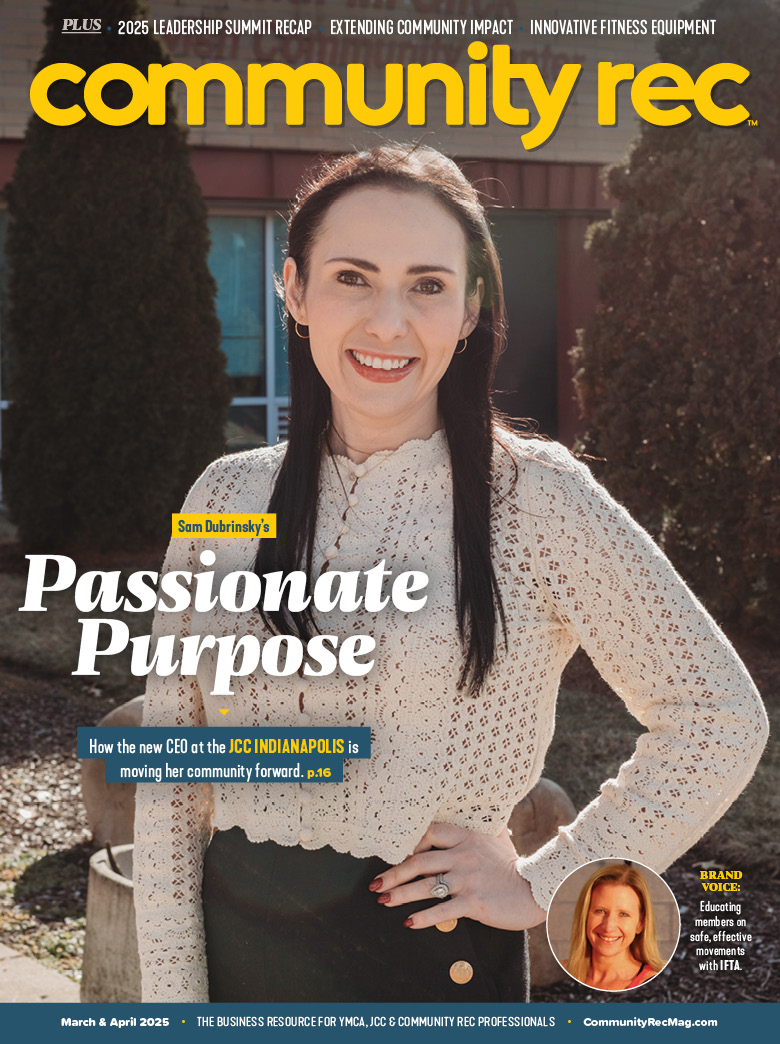Traditional aquatics programming is a proven tactic for success in community recreation, but if you want to widen your demographic, aqua therapy is worth considering.
The Sonoma County Family YMCA in Santa Rosa, California, offers one of the only warm water therapy pools in their community. Due to the senior population making up roughly 30% of their membership, this allows them to attract and retain members by offering a number of aqua therapy classes.
One class offered in the warm water therapy pool is arthritis water exercise, consisting of range-of-motion and muscle-strengthening exercises. “The warm water pool is highly used by seniors, and people who are struggling with arthritis,” said Michelle Head, the chief operations officer at the Sonoma Y. “Seniors prefer that pool temperature over the other, and we continuously hear how it’s been a lifesaver for many of them with their mobility, stiffness in their joints and recovering.”
Similarly, at the Osher Marin JCC in San Rafael, California, members have access to a shallow depth, 90-degree pool with a mechanized chair lift. This feature allows them to offer a hydrotherapy program to their members. “Our hydrotherapy program has more benefits than I can count,” said Rachael Marieiro, the aquatics coordinator at the Osher Marin J. “I’ve seen people come into our pool unable to walk — but in the water, they are completely mobile.”
While a significant percentage of the Sonoma Y membership is in the senior population, they are not the only members who benefit from the warm water therapy pool. Also offered is adaptive exercise programs, providing basic water safety and swimming skills for children with special needs. “A lot of these families and individuals prefer the warm water therapy pool,” said Head. “It’s been a great benefit in helping with our strong retention, as well as a recruitment tool to acquire new members.”
According to Marieiro, hydrotherapy is beneficial for all ages and brings in many members from around the Bay Area. “The hydrotherapy program benefits people who have a range of needs, as well as anyone who might need adaptive accommodations,” she said. “Because of our programming, many people have the opportunity to exercise in their own ways.”
Additionally, a warmer water pool is a great benefit for children first learning to swim. “The warmer water is more conducive for that first exposure to a swim lesson and getting in the pool than maybe a colder temperature pool,” elaborated Head.
Hand-in-hand with beginner swimmers, expectant mothers also benefit from aqua therapy, which is why the Sonoma Y offers “Mommy-To-Be” and “Pre-Post Natal Exercise” classes. “It really benefits all ages,” explained Head. “From moms when they’re pregnant — being able to use the pool because it provides the buoyancy — to people who are still swimming in their 90s.”
To successfully offer an aqua therapy program, Marieiro suggests focusing on staffing and scheduling. “Have staff with different certifications or licenses to accommodate people with different needs,” she elaborated. “We also keep a select time when the pool is used for aquatic therapy, we close the pool during this time.”










